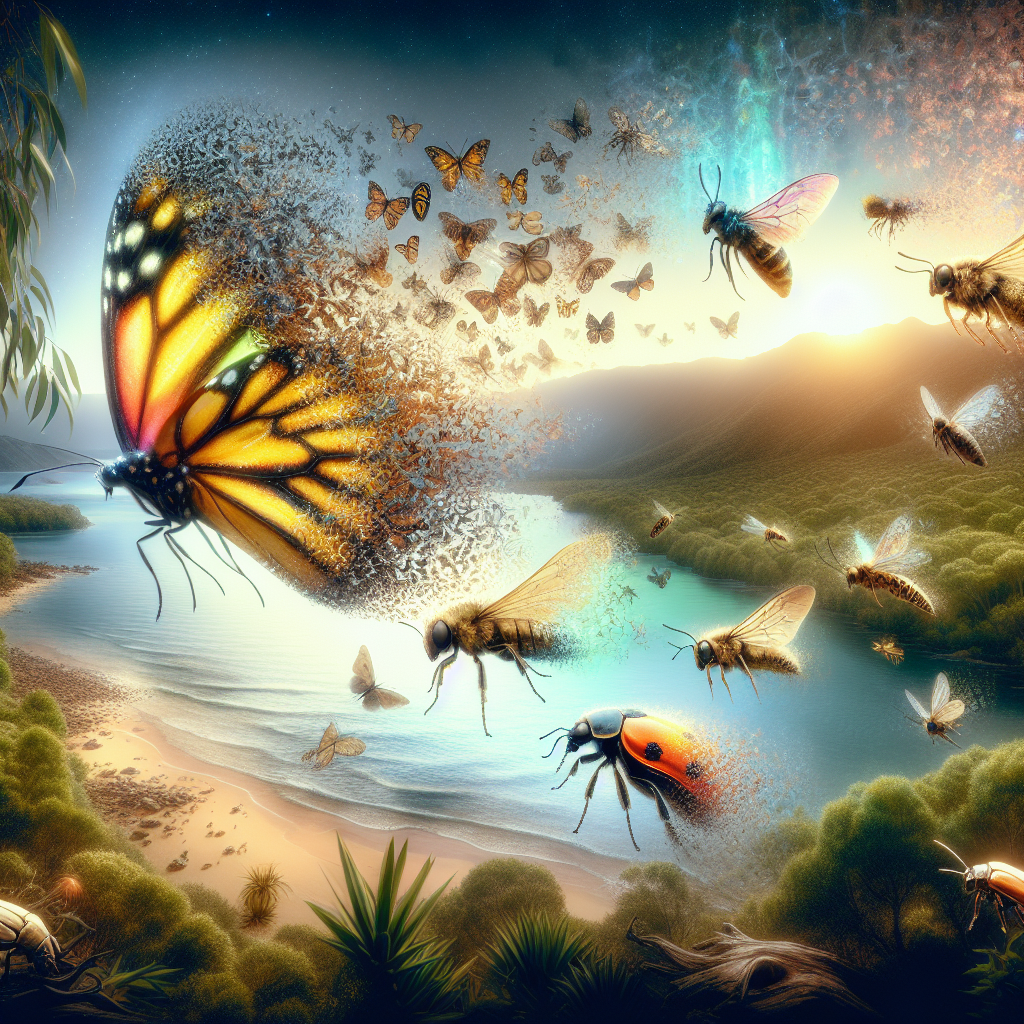Australia Faces Alarming Invertebrate Extinction Rate: Up to Three Species Per Week Vanishing
Australia is confronting an unsettling biodiversity crisis, with research indicating that up to three native insects and other invertebrates are lost to extinction every week. This distressing trend has been highlighted in a recent study published in Cambridge Prisms: Extinction, revealing that more than 9,000 invertebrate species have vanished since European colonization, and another 39 to 148 species are projected to become extinct in 2024. These findings raise urgent questions about the effectiveness of the Australian government’s pledge to halt all extinctions.
Lead author Professor John Woinarski from Charles Darwin University expressed concern that many individuals remain unaware of the ongoing crisis surrounding invertebrate species. He notes that “we’ve caused far more harm, loss of species, loss of nature, than what we’ve recognized and acknowledged to date.” Alarmingly, only one invertebrate extinction—the Lake Pedder earthworm—has been officially documented, highlighting a systemic blind spot regarding invertebrate conservation.
The threats facing these vital creatures mirror those affecting various species: climate change, habitat loss, pollution, and the introduction of non-native species. Dr. Jessica Marsh, a conservation biologist and co-author of the study, emphasizes the precarious nature of cave invertebrates, which often exist in very specific habitats and can be wiped out by a single catastrophic event.
Dr. Kate Umbers, managing director of Invertebrates Australia, underlines the shocking nature of these extinction rates. Additionally, she points out that invertebrates comprise a staggering 95% of all animal species, playing a crucial role in maintaining healthy ecosystems and agriculture. Reflecting a biblical principle of stewardship, this revelation encourages individuals to recognize their responsibilities toward God’s creations.
In light of this critical situation, it is essential to engage in a dialogue about our relationship with nature. The Bible reminds us, “The earth is the Lord’s, and everything in it” (Psalm 24:1). This verse serves as a poignant reminder of our duty to care for the environment and all its inhabitants, reflecting the love and responsibility that comes with being stewards of creation.
In these challenging times, let us take inspiration from the words of Jesus, who taught us to cherish every part of God’s creation. Ignoring the plight of invertebrates can lead to broader ecological consequences that affect all living beings. As we reflect on this alarming trend of extinction, may we be motivated to appreciate and protect the intricate web of life that sustains our world.
The takeaway here is profound: the protection of invertebrates is not just about conservation; it’s about nurturing our shared home. As each of us plays a part in God’s creation, let us strive to honor the diversity and beauty of all creatures, big and small, and inspire others to join in this vital cause for the benefit of future generations.
Explore and dig up answers yourself with our BGodInspired Bible Tools! Be careful – each interaction is like a new treasure hunt… you can get lost for hours 🙂


